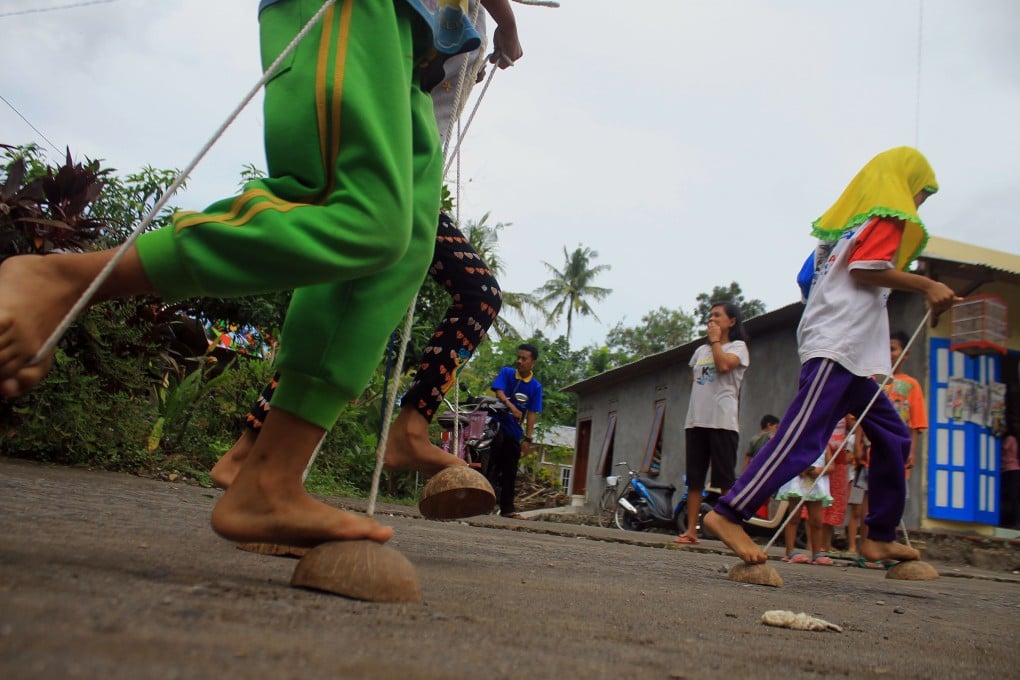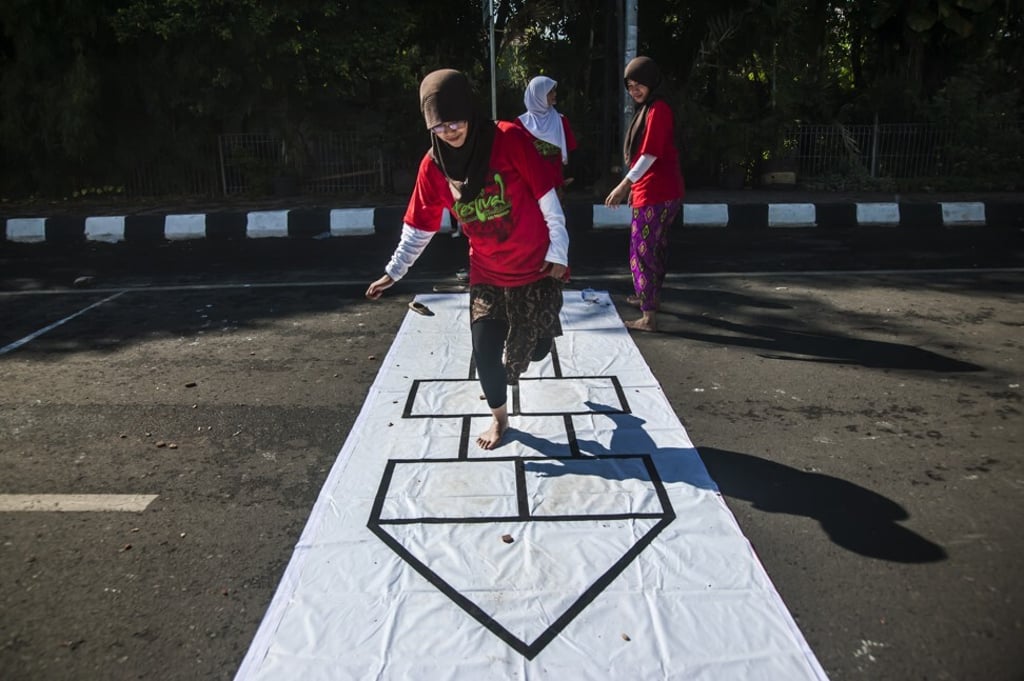Childhood unplugged: why traditional games and toys, from hopscotch to stilts, are having a revival in Indonesia
- Communities in Indonesia are encouraging children to play old games and toys instead of hunching over a phone
- The games usually need few props, such as chalk or coconut shells, are good exercise and promote community spirit

Shahnaz Aliyya Nurfauzi likes playing traditional Indonesian games more than anything she might find on a mobile phone. The seven-year-old from Jakarta likes engklek, which is similar to hopscotch – she needs only chalk to draw columns and numbers on the ground – and engrang batok, involving a balancing act on halved coconut shells.
Aliyya was taught how to play her new favourite games by volunteers from Jakarta-based Komunitas Temen Main (Playmate Community), who encourage children to enjoy traditional games to promote community harmony.
In recent years, children around the world have turned to video games for entertainment, often playing alone and indoors, hunched over a mobile phone. Aliyya, though, likes getting active with her friends. She has the most fun “winning”, “jumping, because I love jumping”, and “falling, especially when the floor is slippery”.
A part of Indonesia’s cultural history, traditional games reflect the country’s communal spirit. Mostly played on neighbourhood streets by groups of children who use modest props or none at all, the games are among the few remaining connections shared by almost all Indonesians.

Until the introduction of the internet and mobile phone games, and more recently the dangers of the Covid-19 pandemic, children in the Southeast Asian country’s affluent neighbourhoods played the same games as those who lived in slums, with the same rules and the same basic tools – including chalk, rubber bands or discarded coconut shells.
Mikayla Himawan’s favourite pastime involves a few beans and shells. The 10-year-old’s school in Jakarta introduced students to traditional games, and she now has a passion for congklak, played on a board with beans and seashells. She enjoys it because it requires tactical thinking and quick hand movements. “I love thinking of ways to win a game,” she says.
